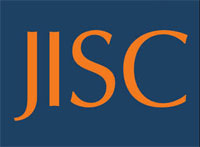JISC Online Conference
 Wednesday, November 3, 2010 at 4:32PM
Wednesday, November 3, 2010 at 4:32PM  I'm delighted and honoured to have been invited to talk at the JISC Online Conference about e-Learning Innovation particularly as I've been included within such an impressive cohort of fellow speakers. I'm also slightly surprised given that I'm somewhat skeptical about the efficacy of e-learning and indeed m-learning which a fellow wag recently described to me as err-Learning and um-Learning - an expression I've enjoyed plagiarising ever since and will become a component of a soon to be released amusing viral campaign targetted at that dinosaur educational technology cum agricultural trade show called BETT but in the meantime you'll need to enjoy our sheep.
I'm delighted and honoured to have been invited to talk at the JISC Online Conference about e-Learning Innovation particularly as I've been included within such an impressive cohort of fellow speakers. I'm also slightly surprised given that I'm somewhat skeptical about the efficacy of e-learning and indeed m-learning which a fellow wag recently described to me as err-Learning and um-Learning - an expression I've enjoyed plagiarising ever since and will become a component of a soon to be released amusing viral campaign targetted at that dinosaur educational technology cum agricultural trade show called BETT but in the meantime you'll need to enjoy our sheep.
Don't get me wrong I haven't suddenly become anti-moble learning it's just that having promoted it since the mid-80's I really think that it's arrived, happened and is no longer a question anymore. I'd advise those still struggling with the concept to consider a new career. It was this realisation that lead me to consolidate the worlds largest conference about learning and mobile computing, i.e. Handheld Learning, into a more holistic festival about the positive impact of disruptive technologies and embark on a world tour to initiate a renewed debate about the role of technology in learning called, surprisingly enough, Learning Without Frontiers.
I hope you'll join me for a robust discussion during the JISC Online Conference - I don't profess to be an expert so I'll be easy to catch out but as long as I start a useful conversation that challenges existing sacred cows that should have been slaughtered ages ago I'll be happy.
You can sign up for the conference here.
This is my unedited abstract (I have no idea what my friends at JISC will make of it!).
Meanwhile I'll be trying to figure out how to make Elluminate (a solution for 21st century education & training that doesn't support mobile technology) do something vaguely useful beyond displaying Powerpoint slides).
Is the Future Mobile?
Almost 25 years of investment in ICT in schools has generated little, if any, evidence of improved learning outcomes.
This statement is a gift to those presently urging the newly seated UK administration to return to a "back to basics" approach to learning with an anti-technology sentiment.
Who can blame them when much of the technology found in formal educational establishments bears little resemblance or relevance to the outside world that learners inhabit or the world in which they are expected to compete?
A coalition of business interests between trade associations & soon to be defunct quango's has successfully ensured that technology suppliers & experts who otherwise could not survive market forces remain in force like the undead in a bad zombie movie. An obsession with technology for the chronologically displaced such as interactive white boards, learning platforms & the teaching of "office" products has created a generation of learners who are at best ill-equipped to enter the 21st century workforce. It is, in the opinion of the speaker, a national emergency deafened by silence & inaction. The speaker is vexed.
An absence of a manufacturing industry, the changing of working environments and the disruption caused by societies shift from the "push economy" of the 20th century to the "pull economy" of the 21st has lead to a massive global growth in the creative, digital & information technology sectors yet the UK is woefully slipping behind in the fostering & nurturing of future talent to compete in this sector.
The title of this talk given to the speaker, "Is the future mobile?", was fine when he spoke about it in the mid-80's at a conference called "Education 2010" but to ask this question today is frankly ridiculous.
On a planet supporting 6 billion people there are nearly 5.5 billion mobiles so surely the question is intended to be rhetorical. Or is it?
The fact that this online conference is delivered using an outdated platform without support for the mobile platforms that the majority of world's population owns is an irony not lost on the speaker & only serves as evidence of earlier assertions.
Disruption is not about supporting 19th century teaching practices with 20th century technology. It is about completely rebooting the way we approach learning.
Graham will argue for the acceptance of evidence of improved learning generated by the learners themselves who use mobile, video game, social media, open source & other disruptive technologies as part of their everyday life regardless of social or cultural background.
 Graham |
Graham |  15 Comments |
15 Comments |  disruption,
disruption,  elearning,
elearning,  ipad,
ipad,  jisc,
jisc,  learning,
learning,  mlearning,
mlearning,  teaching in
teaching in  Handheld Learning,
Handheld Learning,  Mobile
Mobile 
